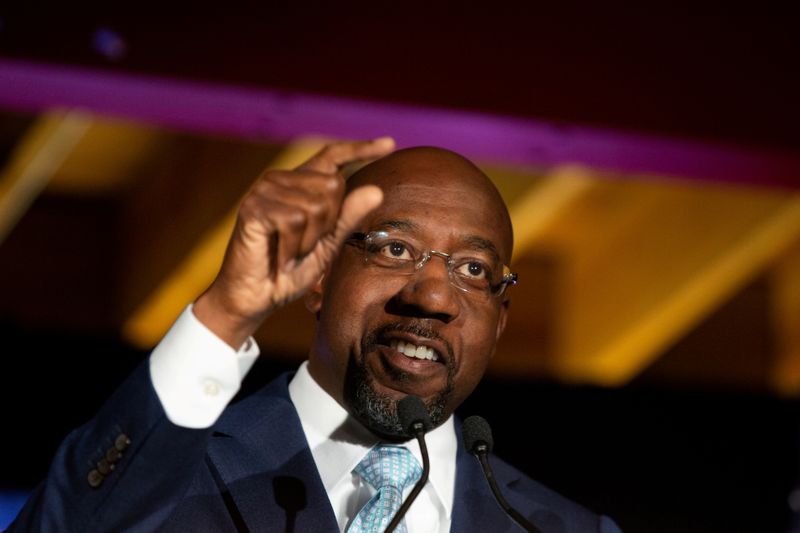By David Morgan
WASHINGTON (Reuters) - The state of Georgia is playing an unusual power-broker role in the knife-edge balance-of-power struggle playing out between Democrats and Republicans over the U.S. Senate following Tuesday's elections. Georgia's two Senate seats, unusually, were both up for election this year, and both races are headed for run-off elections on Jan. 5 after no candidate in either race managed to win a majority of the votes.
As election results stand as of Friday, the Democrats and the Republicans will each hold 48 seats in the 100-member Senate. Two other races in addition to Georgia are still outstanding, but both are widely expected to be won by Republicans.
With the Georgia runoff set for Jan. 5, that will leave the question of which party will control the Senate unanswered until after the rest of the new Congress is sworn in on Jan. 3.
WHY WERE BOTH GEORGIA SENATE SEATS ON THE BALLOT?
Republican Senator David Perdue was up for re-election, according to the regular six-year Senate cycle. He was first elected in 2014 and is now in a tight contest against Democrat Jon Ossoff, an investigative journalist and media executive.
Each fell short of the 50%-plus-one-vote threshold, with Perdue getting 49.8% of the vote and Ossoff 47.9%, and they will face each other in a run-off, according to Edison Research on Friday.
Georgia's other senator, Republican Kelly Loeffler, was appointed in 2019 to succeed Johnny Isakson, who retired. Her seat was up for grabs in a special election that drew 21 candidates, including Republican U.S. Representative Doug Collins.
Democrat Raphael Warnock emerged with the greatest share of the vote, at 32.7%, with Loeffler drawing 26% and Collins 20.1%. The winner of the runoff election in that race will serve only two years, filling out the remainder of the six-year term that Isakson had been elected to in 2016.
HOW COMMON ARE RUNOFF ELECTIONS AMONG U.S. STATES?
Several U.S. states including Georgia require runoff elections for primary contests that produce no clear winner.
But Georgia became one of the few states to apply runoffs to general elections, after a gubernatorial race in 1966 failed to produce a clear winner and a state legislature dominated by Democrats chose their own candidate over a Republican who had won a slightly larger plurality of voters.
WHY WOULD GEORGIA'S RUN-OFFS AFFECT CONTROL OF THE SENATE?
Democrats failed to generate the "blue wave" of voters they hoped for on Nov. 3 but won enough Senate races to pick up a 48th seat in the 100-member Senate. Republicans look likely to keep 50 seats before the Georgia runoffs, if Republicans are re-elected in the races in North Carolina and Alaska that have not yet been called. The Republican candidates are leading in the vote counts in both of those states.
Democrats would face long odds in winning both Senate seats in traditionally Republican-leaning Georgia, but if they do succeed and Joe Biden wins the White House, that would give a Vice President Kamala Harris a 51st tie-breaking vote.

That would be a huge prize for Democrats, because otherwise a Republican-controlled Senate would have the power to block most of Biden's policy priorities. It sets the stage for an intense two months of campaigning as money, political operatives and the news media pour into Georgia.
